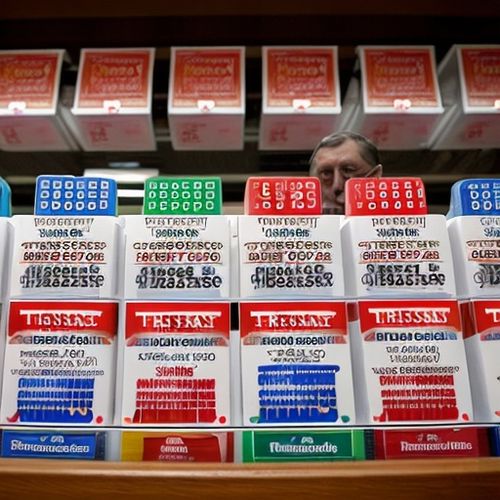In the vast and interconnected web of modern consumerism, the idea that individuals can wield collective power through their spending choices is not new. However, the recent call for a nationwide "economic blackout" by John Schwarz, a self-described "mindfulness and meditation facilitator," has reignited the conversation about the potential impact of consumer activism in the digital age.
This movement, though seemingly spontaneous and uncoordinated, has tapped into a deep well of public discontent, revealing the evolving dynamics of how ordinary people can challenge corporate power and influence societal change.
The Catalyst: A Viral Call to Action
On February 28, John Schwarz urged Americans to participate in a 24-hour economic boycott of major retail chains and fast-food companies. Instead, he encouraged spending at small businesses and on essential needs. Schwarz, who goes by "TheOneCalledJai" on social media, has no background in social or political organizing.
Until recently, his online presence was limited to inspirational messages and motivational tips. Yet, his call for an "economic blackout" quickly went viral, with his video shared over 700,000 times on Instagram and viewed 8.5 million times. Celebrities like Stephen King, Bette Midler, and Mark Ruffalo lent their support, amplifying the message and propelling it into the mainstream.
This rapid spread of Schwarz's message is a testament to the power of social media in mobilizing collective action. In an era where information travels at the speed of light, a single individual can spark a movement that resonates with millions. The appeal of Schwarz's call lies in its simplicity and accessibility. It requires no formal organization, no membership dues, and no political affiliations—just a willingness to withhold spending for one day.
The Roots of Discontent: A Multifaceted Rebellion
The reasons behind the widespread support for Schwarz's boycott are as diverse as the participants themselves. Many Americans are frustrated with the rising cost of living and the perceived exploitation by large corporations.
Others are angered by the concentration of wealth among billionaires like Elon Musk, who seem to wield unchecked influence over the economy. Still, others are pushing back against the Trump administration's efforts to dismantle federal programs and the growing fear of autocracy in America.
A significant driver of the boycott movement is the rollback of diversity, equity, and inclusion (DEI) policies by major corporations. Companies like Target, which had previously championed DEI initiatives, have faced intense pressure from right-wing groups and the Trump administration to abandon these efforts.
Target's decision to eliminate hiring goals for minority employees and dismantle its racial justice committee has drawn particular ire from consumers, especially Black Americans who feel betrayed by the company's retreat.
This backlash against corporate retreat from DEI policies is not isolated. Dozens of Fortune 500 companies have similarly backtracked, leading to a broader sense of disillusionment among consumers who view these actions as a betrayal of progressive values. The anger is palpable, and the boycott has become a way for consumers to voice their discontent and demand accountability.
The Historical Context: Consumer Activism in America
Consumer boycotts have a long and storied history in the United States. From the Boston Tea Party to the Montgomery Bus Boycott, Americans have long used their purchasing power to effect change.
As Lawrence Glickman, a historian at Cornell University and author of "Buying Power: A History of Consumer Activism in America," notes, "Doing something in the American context has often meant using pocketbook politics." This form of collective action allows individuals to feel a sense of power and connection, even outside the electoral arena.
However, effective boycotts typically require clear and specific demands, as well as a focused target. The "economic blackout" proposed by Schwarz lacks these qualities, making it difficult for experts to predict its impact on the bottom lines of major corporations. Despite its nebulous nature, the movement has gained strength because it has tapped into a broader sense of public frustration with the American economy, corporate power, and political corruption.
The Challenges of Sustained Boycotts
While the initial enthusiasm for Schwarz's call is undeniable, the sustainability of such a boycott remains questionable. Historically, boycotts tend to be short-lived, with consumers often returning to their usual habits within a few weeks. According to Young Hou, a marketing professor at the University of Virginia's Darden School of Business, "It's very difficult to sustain anything longer than a few weeks." Consumers are typically fickle and reluctant to disrupt their routines for extended periods.
Moreover, boycotts can sometimes backfire, leading to a counterreaction from supporters of the targeted company. In some cases, this can result in increased spending by loyal customers, negating the intended impact.
For example, the recent boycott of Target may be difficult to sustain because other major retailers like Walmart and Amazon have also rolled back DEI programs. Consumers may find it challenging to switch their loyalty without sacrificing convenience or access to essential goods.
Successful Boycotts: Lessons from the Past
Despite these challenges, there are notable examples of successful boycotts that have forced companies to make significant changes. In 2023, Bud Light's parent company, A-B InBev, faced a massive backlash from right-wing consumers over its brief partnership with transgender influencer Dylan Mulvaney.
The boycott, fueled by high-profile endorsements from right-wing activists and politicians, led to an estimated $1.4 billion in lost sales for the company. The success of this boycott can be attributed to its specificity and the ease with which consumers could switch to alternative products.
Another example is the pressure placed on Nike in the 1990s and 2000s over its use of sweatshop labor. Protests on college campuses and public scrutiny forced the company to raise the minimum hiring age in its factories and allow human rights inspections. Similarly, after the Parkland school shooting in 2018, consumer activism successfully pressured companies like Delta, Avis, and MetLife to sever ties with the National Rifle Association.
These examples illustrate that while boycotts rarely cripple powerful companies, they can force them onto the defensive and lead to meaningful changes. The key to success often lies in the clarity of the message and the specificity of the demands.
The Future of Consumer Activism: A Digital Renaissance
The "economic blackout" proposed by John Schwarz may not be the most strategically sound boycott in history, but it represents a new wave of consumer activism in the digital age.
In an era where social media platforms can amplify individual voices and mobilize millions within hours, the potential for collective action has never been greater. The success of Schwarz's call, despite its lack of formal organization, highlights the power of grassroots movements in the digital sphere.
As consumers continue to navigate a complex economic landscape, marked by rising inequality and corporate influence, the desire to reclaim power through collective action remains strong.
Whether through targeted boycotts, support for small businesses, or demands for corporate accountability, the future of consumer activism will likely be shaped by the same forces that have driven movements throughout history: a sense of injustice, a desire for change, and the recognition that individual actions can collectively make a difference.
In conclusion, the "economic blackout" movement is more than just a fleeting trend; it is a symptom of a broader discontent with the status quo. While its long-term impact remains uncertain, it has already succeeded in sparking a conversation about corporate power, economic justice, and the role of consumers in shaping the world around them.
As Schwarz himself noted, "People have just had enough and they're fed up." In this digital age, the power of the purse has never been more potent, and the potential for change has never been more within reach.

By Natalie Campbell/Mar 3, 2025

By Benjamin Evans/Mar 3, 2025

By Amanda Phillips/Mar 3, 2025

By John Smith/Mar 3, 2025

By Samuel Cooper/Mar 3, 2025

By Olivia Reed/Mar 3, 2025

By Michael Brown/Mar 3, 2025

By Jessica Lee/Feb 27, 2025

By Rebecca Stewart/Feb 27, 2025

By Ryan Martin/Feb 27, 2025

By Rebecca Stewart/Feb 27, 2025

By Sophia Lewis/Feb 27, 2025

By Amanda Phillips/Feb 27, 2025

By Christopher Harris/Feb 27, 2025

By Amanda Phillips/Feb 27, 2025